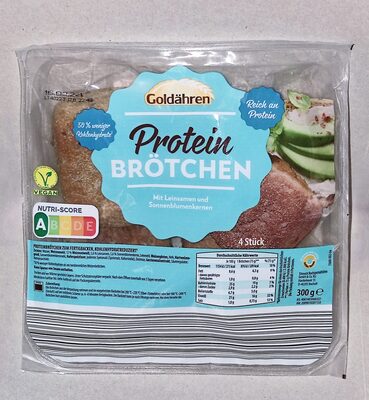
Barcode: 4061463060327
Protein Brötchen
HALAL
📝 Reason: All ingredients listed in the product are plant-based or synthetic compounds that do not fall under the Haram category. There are no meat ingredients or Haram E-codes present in the product. Therefore, the product is considered Halal.
📄 Certificates: None
Ingredients:
Details
Understanding the Halal Status of Protein Brötchen
The Protein Brötchen is a widely enjoyed bread product known for its high protein content and nutritional benefits. One of the key concerns for consumers is whether the product meets Halal standards. Fortunately, the Protein Brötchen is confirmed to be Halal, ensuring that it is suitable for Muslim diets. This post will delve into the reasons behind its Halal status, outline its ingredients, and explore any E-numbers associated with the product.
What Makes Protein Brötchen Halal?
All ingredients found in the Protein Brötchen are either plant-based or synthetic compounds that do not fall under any Haram categories. Importantly, there are no meat ingredients or Haram E-codes present in the formulation. This comprehensive review of the ingredients underscores the Halal certification of the Protein Brötchen.
Ingredients Breakdown
- Wasser (Water): Water is universally accepted as Halal.
- Weizenmehl (Wheat Flour): This main ingredient is plant-based and Halal.
- Weizeneiweiß (Wheat Protein): Being derived from wheat, this ingredient is also Halal.
- Leinsamen (Flaxseeds): Flaxseeds are plant-based and Halal.
- Sonnenblumenkerne (Sunflower Seeds): This ingredient is entirely plant-derived and Halal.
- Leinmehl (Flaxseed Meal): Made from flaxseeds, this meal is Halal as well.
- Weizengluten (Wheat Gluten): A purely plant-based ingredient making it Halal.
- Hefe (Yeast): Yeast is generally considered Halal and is widely accepted in food production.
- Hartweizengrieß (Durum Wheat Semolina): As derived from durum wheat, this ingredient is Halal.
- Sonnenblumenkernmehl (Sunflower Seed Meal): Another plant-based ingredient, confirming its Halal status.
- Haferspelzfaser (Oat Hull Fiber): This is a plant-derived fiber that is Halal.
- Jodiertes Speisesalz (Iodized Salt): Composed of salt and potassium iodate, it is Halal.
- Dextrose: This sugar is derived from plants, confirming its Halal status.
- Gerstenmalzextrakt (Barley Malt Extract): A plant-based ingredient that remains Halal.
- Säureregulator. Natriumacetate (Sodium Acetate): This synthetic compound is regarded as Halal.
Ingredient E-numbers and Their Halal Status
While the Protein Brötchen does not contain any specific E-codes that are problematic, it does feature two ingredients designated as E-numbers:
- jodiertes Speisesalz: This is considered Halal as it is derived from safe natural sources.
- Säureregulator. Natriumacetate: Sodium acetate is also acceptable in Halal diets, being a synthetic compound that does not involve any Haram substances.
Conclusion
The Protein Brötchen stands out as a Halal-friendly option for those looking to indulge in a nutritious bread product without compromising their dietary principles. Given that all ingredients are either plant-based or synthetically derived and recognized as Halal, consumers can enjoy this protein-rich bread with full peace of mind. Whether you’re preparing a hearty meal or seeking a snack, the Protein Brötchen aligns well with a Halal lifestyle.
